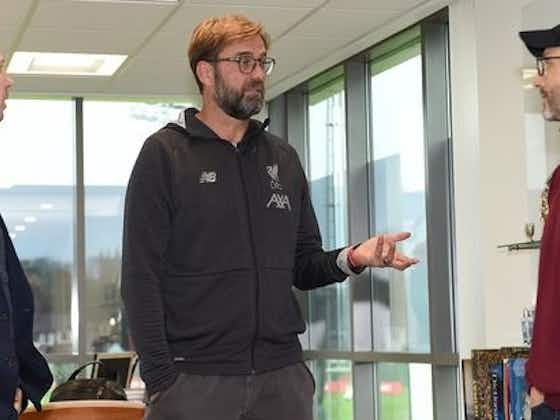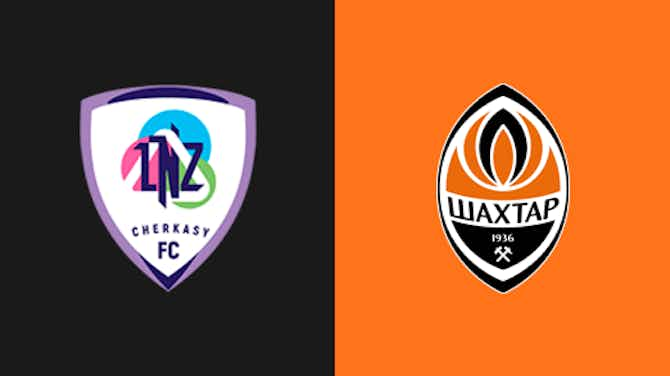Empire of the Kop
·28 February 2021
Money may talk, but Liverpool’s data-led transfer strategy remains the way forward – opinion

Empire of the Kop
·28 February 2021

Data has always been viewed with some amount of scepticism, bordering on heresy to the purists who shy away from number-crunching as if it were a plague slowly consuming the spark of sport.
Some believe that a robotic approach to football could signal the very end of what makes the sport so special. An end to individuality, an end to technical brilliance, an end to all the magic inherent within that inspires wonder and misty eyes.
“If we’re not careful, through Moneyball and Brentford, Barnsley and the rest who keep telling us this is the way forward, it is so predictable and it’s boring,” former Head of European Recruitment at Everton Ian Atkins told the Echo. “If too many clubs start adopting this in the Premier League and the Championship then the standard of the game drops. For me, it already has.”
“Where are the technical players? There’s only Jack Grealish and Phil Foden that really light you up. Data doesn’t measure unpredictability or creative ability, it doesn’t,” the 64-year-old added. “It also doesn’t measure all kinds of things, the little dips and everything. What you are left with is your centre-half can be the best player on the pitch and he plays 50 balls square.”
Despite all its potential and its revealing capabilities, data does indeed have its limits: how does one, for instance, test character with data?
Blind trust in data, and data alone, is a foolish enterprise of course, much in the same way a scout wouldn’t just watch one game from a promising youngster and decide they’d seen all they needed to.
You need the bigger picture, which Liverpool are often quite adept at finding, mixing an expert use of analytics with a grading system implemented by sporting director Michael Edwards.
We have our number-crunchers, but the current approach to finding our next great players is hardly a robotic process; it may lead, it may rule out certain options, but data does not make key recruitment decisions for us, it merely informs them. And why shouldn’t it?
Atkins claims that data cannot “measure unpredictability or creative ability”, yet how would he then explain Liverpool’s purchase of Andy Robertson from a relegated Hull side?
Across the last four seasons, including our current campaign, the Scotsman has registered 33 Premier League assists – more than any other Liverpool player, including Mo Salah (31), Trent Alexander-Arnold (29), Roberto Firmino (26), and Sadio Mane (18).
Say that the fullback was the product a fluke, how do we then explain the purchases of the remaining men on that list, all of whom, bar Firmino and Academy graduate Alexander-Arnold, were brought in during Jurgen Klopp’s reign?
“When you are in recruitment you are connecting with people; agents, sporting directors. The people that are doing the data stuff now, a lot don’t know anybody. There is no communication,” the former defender said. “We used to find out when you were abroad, you’d talk and pick things up from other people as well. It doesn’t happen anymore as people are stuck in an office crunching numbers.”
The very issues the former Everton man refers to comes across more as a flaw in the application of data rather than inherent to data itself. Take, for instance, Atkins’ accusation that data has steadily eroded communication in the sport.
The claim is partly grounded in fact, as far as Liverpool’s approach goes, with The Athletic having previously attested that Edwards tends to grant scouts a broad degree of independence in their activities.
“Edwards rarely calls scouting summits. Maybe once or twice a year will those who operate remotely in Britain travel to Merseyside,” Simon Hughes and James Pearce wrote. “It is felt that the system works because it is simple, personable and because trust exists.”
“The lines of communication are never closed and each scout knows that,” the journalists added.
While the club is more than aware of the power behind analytics, the importance of eyes on the ground certainly has not waned.
There can be no question that the model currently employed by Liverpool works and remarkably so given the scale of financial backing behind rivals Manchester City.
A 99-point season after the Citizens had dashed the Reds’ hopes the term prior, amassing a point more than Jurgen Klopp’s second-placed side to seal their 6th league title, was utterly remarkable.
Rivals will no doubt point to the big-money signings of Alisson Becker and Virgil van Dijk, both funded by Barcelona’s ill-advised £142m move for Philippe Coutinho in 2018.
Anyone who has read anything written by a Liverpool journalist will already be more than aware that this is a fact many hardly shy away from.
Of course, it would be ignorant of us to also ignore the reality that such transfers were directly linked to the sale of our former Brazilian playmaker. Liverpool know a good deal when they see one, but this was not the action of an oil-rich club exercising its financial might.
That’s not to say that we’re a financially poor side, but the acquisitions of Alisson and Van Dijk were well-thought-out and made within our means.
Gini Wijnaldum, a more low-key signing from Newcastle United, has been a vital cog in Klopp’s first-Xi since signing in 2016, and is now being courted by the Catalan giants, among a host of elite European clubs, as his contract runs to an end.
The Dutchman is a perfect example of how a data-led approach can produce world-class talent for clubs without spending a ludicrous amount of money on a well-renowned player.
Spending big or small, one fact ultimately has not changed throughout the course of Klopp’s and Edwards’ partnership: a data-driven approach works and can bridge the gap to Liverpool’s richer rivals.
Far from stifling technical brilliance and moments of magic, Liverpool crafted a side that balanced creativity with sheer grit and industry.
If Atkins and the like wish to identify what’s sucking the life out of football, it’s not data nor the number-crunchers – it’s arguably the money talks, instant satisfaction approach favoured by Europe’s fat cats.






























































